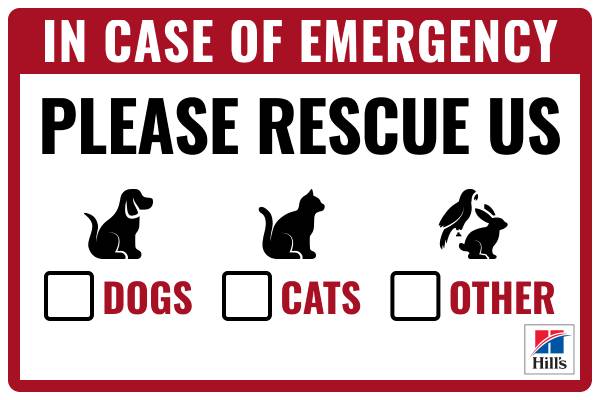Prepare your pet for any emergency
Prepare your pet for any emergency
Whether it’s a tornado or a house fire, most pet parents don’t consider their pet’s safety until an emergency is already happening. Small preparations now can save you and your pet precious time in case disaster strikes.


Help rescuers find your pet
In case of emergency, a pet rescue decal lets first responders know to help your pet. Click here to download a printable decal, then put it in a visible spot by your front door to help keep your pet safe!

Established by FEMA, National Animal Disaster Preparedness Day (NADPD) is held in May every year, while National Disaster Preparedness Month is every September. Both are great reminders to make sure your pets are ready in case your family has an emergency.













There is always a need to support shelters since they may also be sheltering those that have become separated from their family.
Some of the simplest ways to help a local shelter include making donations and signing up as a shelter volunteer. If this seems like something you would be interested in, make sure to check with the shelter ahead of time so you can provide the support they need without unnecessary confusion.
Another often overlooked way you can help is by becoming a shelter advocate. Simply making a blog or social media page about your local shelters can encourage others to participate or adopt.











